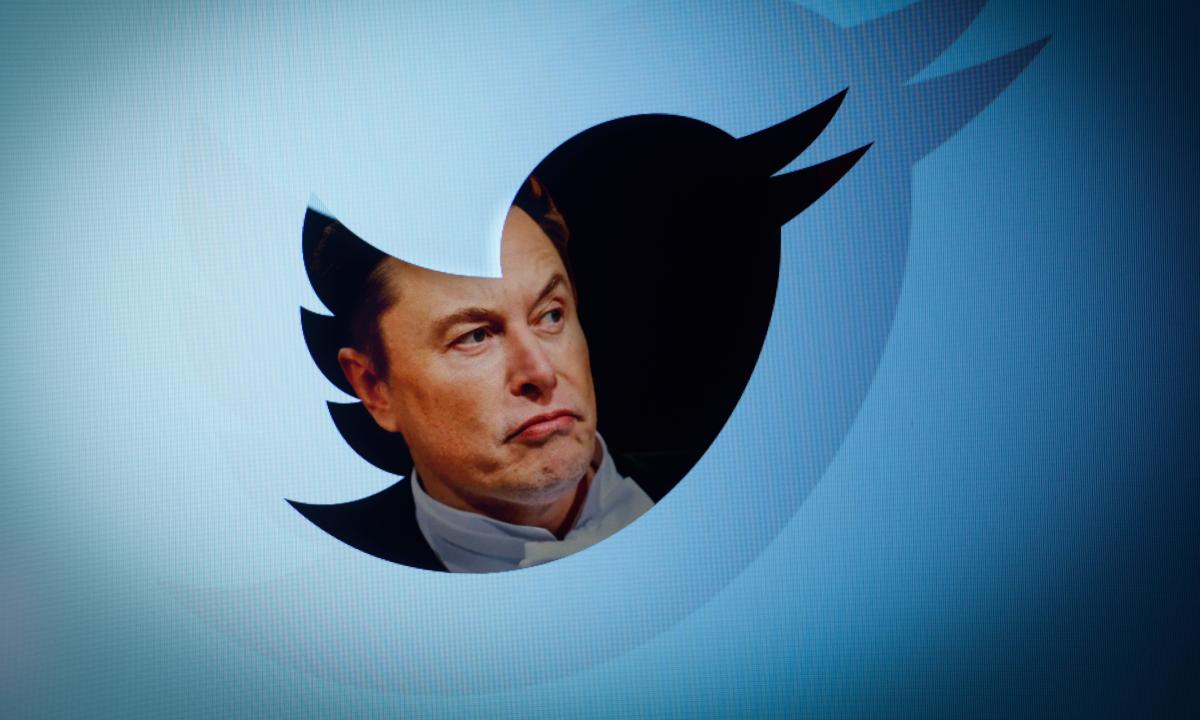Photo: NurPhoto/REX/Shutterstock
APIs might not seem like the sexiest thing to write about in a tech newsletter, but bear with me. Because APIs – or Application Programming Interfaces – are important. They are the synapses of our digital world: without them, our current way of life would not function.
For example, when you visit a website that requires you to sign in and choose to connect with a Google or Facebook account, you are using an API. This click of a button linking your existing account on one platform to a new account on another is made possible through an API. They spring into action whenever one type of work interacts with another and work to bridge that gap. APIs are the overlooked and underestimated army that powers the internet as we know it.
Starting Thursday, those features will disappear as Twitter’s API goes behind a paywall. The company announced this last week remove free access to its API.
“The latest changes to Twitter are likely to spell the end of some of your favorite accounts, tools and features as the platform’s owner, Elon Musk, continues to look for ways to increase revenue,” the Guardian reported. These tools include services such as thread readerwhich unrolls Twitter threads into easily digestible formats, and @EarthquakeBotthat tracks weather events and natural disasters like earthquakes, as well as tools that big brands use for their customer service.
The importance of APIs
“APIs are an area of competing tensions,” says Alan Woodward, Professor of Cybersecurity at the University of Surrey. “Probably the most sensational failure was when Facebook allowed the survey that was eventually used by Cambridge Analytica to collect sensitive data about users and their friends.” On Twitter, API access was “more benign,” says Woodward — he limited himself mainly on posting about third party apps that allow for an element of automation.
Perhaps more worryingly, the API access change spells the end of academic research with Twitter. For example, a recent academic paper that looks at all activity in a single day on Twitter wouldn’t be possible now without paying for access. It’s also a wake up call says researcher Philipp Lorenz-Spreen, so the public can show that their data can be monetized in ways they have no control over. “The research community in my field has always depended on access to the data of the platforms they wanted to study, which is an intolerable situation for independent research and is now even more so,” he says.
As Woodward puts it, “APIs are pretty important to those doing research on Twitter…if he shuts down that access, some of the transparency provided by third-party researchers will likely go away.”
The move also affects the apps and services that use Twitter. “People find useful tools or services built on top of them, academics use them for data, companies use them to connect with customers,” says Kate Bevan, a longtime tech writer who believes the API Musk’s change is significant – and bad news. Bevan is also the person behind it @DaphneFlap, a Twitter bot that relies on API access for its existence, posting a photo of the cat flap through which a cat named Daphne jumps whenever motion is sensed. “We take APIs for granted.”
Musk’s evasions
The API shift was almost universally planned — which might explain why Elon Musk decided to back down, so to speak. on February 5th, he tweeted that “Twitter will enable a lightweight, write-only API for bots that provide good and free content.”
What exactly constitutes “good content” is not known. Presumably it doesn’t include @ElonJet, an account that used automated API interactions between publicly available flight tracking data and Twitter to publish the flight times and locations of Musk’s private jet — an action the entrepreneur dubbed “real-time assassination cooperation-ordinates.” (@ElonJet was banned in December 2022.) “I can’t help but conclude that this move came about because some of the funny bots irritated people in high places,” says Woodward.
“Good content” might be more like @PepitoTheCat, a Twitter account, according to Musk Also takes a picture every time a cat named Pepito goes through its owner’s cat flap: after all, Musk’s full face slipped inside response to requests from the owner of this account that Musk’s policy change would “kill” his profile.
But the change is not only alarming, it also highlights a contradiction in Musk’s goals for Twitter. He has heavily touted the Twitter files during his time as head of the company – a cache of internal documents selectively leaked to journalists with whom he has existing relationships that contain information he claims proves the platform was involved in an opaque decision prior to its ownership – making around key policies. But by saying he’ll exempt people who create “good content” from API restrictions and fees, he’s continuing the same problem. It addresses a problem he reportedly wanted to buy Twitter to solve — the abundance of bots, which he says detract from the value of real, human interactions on the site. But it exacerbates another problem, which he said was significant enough to prompt him to buy the platform for $44 billion in the first place.
Musk introduces a lack of transparency and redacts what was a simple suggestion: anyone who wanted access to the Twitter API could get it for free. Now it comes down to whether they produce content to suit his whims.
It’s another example of the dangers of semi-public platforms controlled by individuals. And an example of the impact removing or revoking access to a relatively unrecognized backbone of the Internet can have on everyday users.
The broader TechScape
Why is Apple planning an even more expensive iPhone? Photo: Andrew Kelly/Reuters
• India, which has been at the forefront of weaponizing app bans in the fight against China, has announced plans to ban 232 Chinese-origin apps. There is precedent for this: In June 2020, India banned TikTok along with 58 other apps of Chinese origin. The bans are likely motivated by more than general suspicion about Chinese technology: India has an ongoing border dispute with China and sees tactical technology bans as a weapon similar to sanctions against the country.
• Generative AI is about to become even more powerful, as the duo behind Nothing, Forever, an AI-generated spoof of Seinfeld live-streamed on Twitch, is trying to prove. As you’d expect from AI-generated work, there are more misses than hits, but the project shows the power of bringing together diverse generative AI tools to create more than the sum of its parts.
• Apple plans to release an even more expensive iPhone. I explain why – amidst rampant inflation and a cost of living crisis – for Fast Company.
Don’t miss interesting posts on Famousbio









